


Prometheus X Fellowship empowers visionary leaders and innovators from across the globe, who are building AI-driven impact ventures and leading transformative projects at the intersection of science, technology, and society. By supporting groundbreaking initiatives, we aim to catalyze global impact, foster innovation, and shape a future where global talent drives meaningful progress for humanity.

Meet the visionaries shaping today's and tomorrow's breakthroughs where extraordinary talent meets unparalleled opportunity for positive transformation. Each with a unique story, passion, and vision for advancing tech-enabled social impact.

Javier is a builder and operator who has worked across global technology, consumer, and cultural sectors. He is currently focused on the future of frontier technology and design, with a particular interest in ambient computing and seamless interfaces.
He previously led global strategy at a gaming company, overseeing fundraising, partnerships, and international expansion. Before that, he spent time as an early-stage venture investor at Wellington Management, backing software, consumer, and emerging technology startups.
Javier is a World Economic Forum Global Shaper, sits on the Steering Council of the Museum of Fine Arts Boston, and serves as an advisor to the New Commonwealth Fund, a $50M philanthropic initiative investing in equity-focused nonprofits. He also founded the Boston chapter of BLCK VC and has been recognized as a Boston Business Journal “25 Under 25” honoree and a Business Insider “Rising Star Venture Capitalist.”
As a Prometheus Fellow, Javier continues to bridge communities, advise on cultural and civic innovation, and build boldly at the edges of emerging technology and culture.

Dr. Nikita Greenidge is a Research Fellow in Surgical Robotics at the University of Leeds whose work is guided by a mission to democratize global healthcare innovation. Her technical research advances robotic endoscopy and micro-ultrasound for early cancer detection, but she is proudest of founding CariSurg, an initiative addressing two of the Caribbean’s most persistent challenges: limited research opportunities for talented students and the critical shortage of locally developed healthcare technologies.
CariSurg was created with the conviction that the Caribbean, rich in intellect and ambition, should be an active creator rather than a passive consumer of medical technology. The initiative directly confronts the region’s reliance on imported, often ill-suited technologies from the Global North by building a homegrown innovation pipeline. In its inaugural year, CariSurg brought four students from across the Caribbean to the UK for an intensive eight-week placement in surgical robotics research. The experience expanded their technical expertise while instilling a deep sense of agency, proving that they can lead in developing solutions that respond directly to their region’s healthcare needs.
This work forms the foundation of Nikita’s broader vision: to cultivate a self-sustaining Caribbean ecosystem for surgical AI and robotics. By equipping local talent to solve locally relevant problems, CariSurg is laying the groundwork to close the persistent technology gap within the region’s healthcare systems.
Nikita’s research, published in Science Robotics and presented at leading conferences including ICRA and IROS, fuels this mission. Her entrepreneurial experience at medtech startups UroLogic and Synbiosys, combined with her leadership in developing the Robotics at Leeds research community, provides the translational expertise necessary to bridge academic research and applied innovation.
As a Prometheus X Fellow, Nikita will accelerate this work by championing a future in which developing nations are active participants in designing and deploying the healthcare technologies they need most.
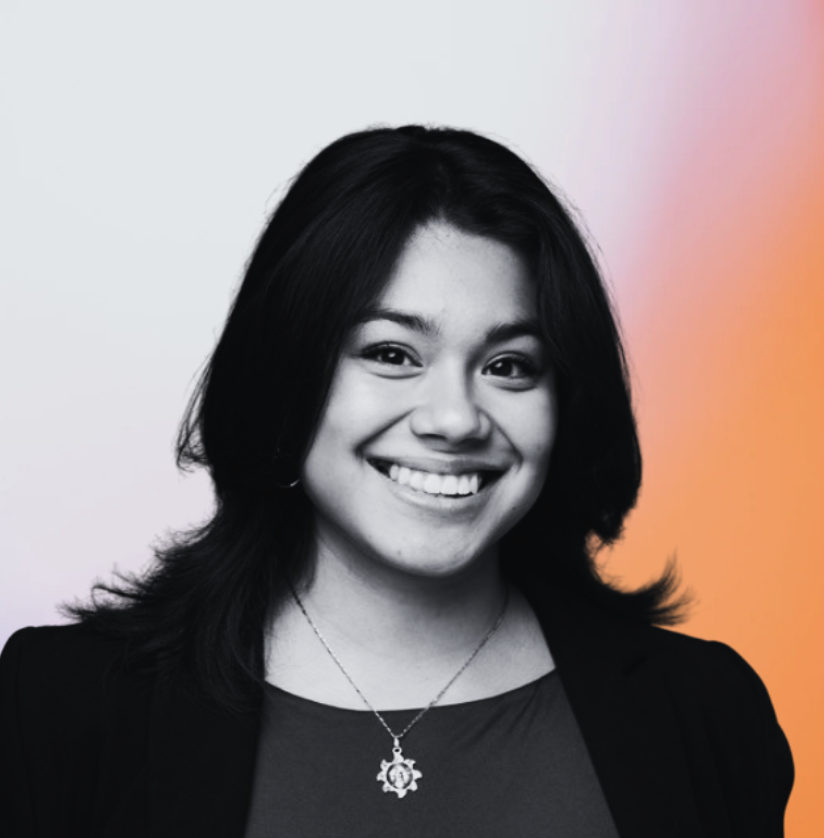
Gabriela Sarahi Martínez Rodríguez is a Rise Global Winner, United World College alum, and first-generation college student from San Miguel de Allende, Mexico. She is currently majoring in Economics–Statistics at Barnard College, where she explores the intersections of technology, financial equity, and social justice.
Gabriela is the co-founder of a stealthAI-powered financial wellness platform designed to help Gen Z make emotionally intelligent, context-aware spending decisions. She also serves as a Financial Literacy Ambassador at Barnard’s Francine A. LeFrak Center for Well-Being and is completing her certification as a financial educator through the National Financial Educators Council.
With experience across global education, tech, and grassroots organizing, Gabriela has led social impact initiatives recognized by the Rise Fellowship, Go Make a Difference Grant, and institutions across Latin America and the U.S. Her projects range from financial literacy programming to a cross-border documentary on domestic violence and survivor reintegration frameworks.
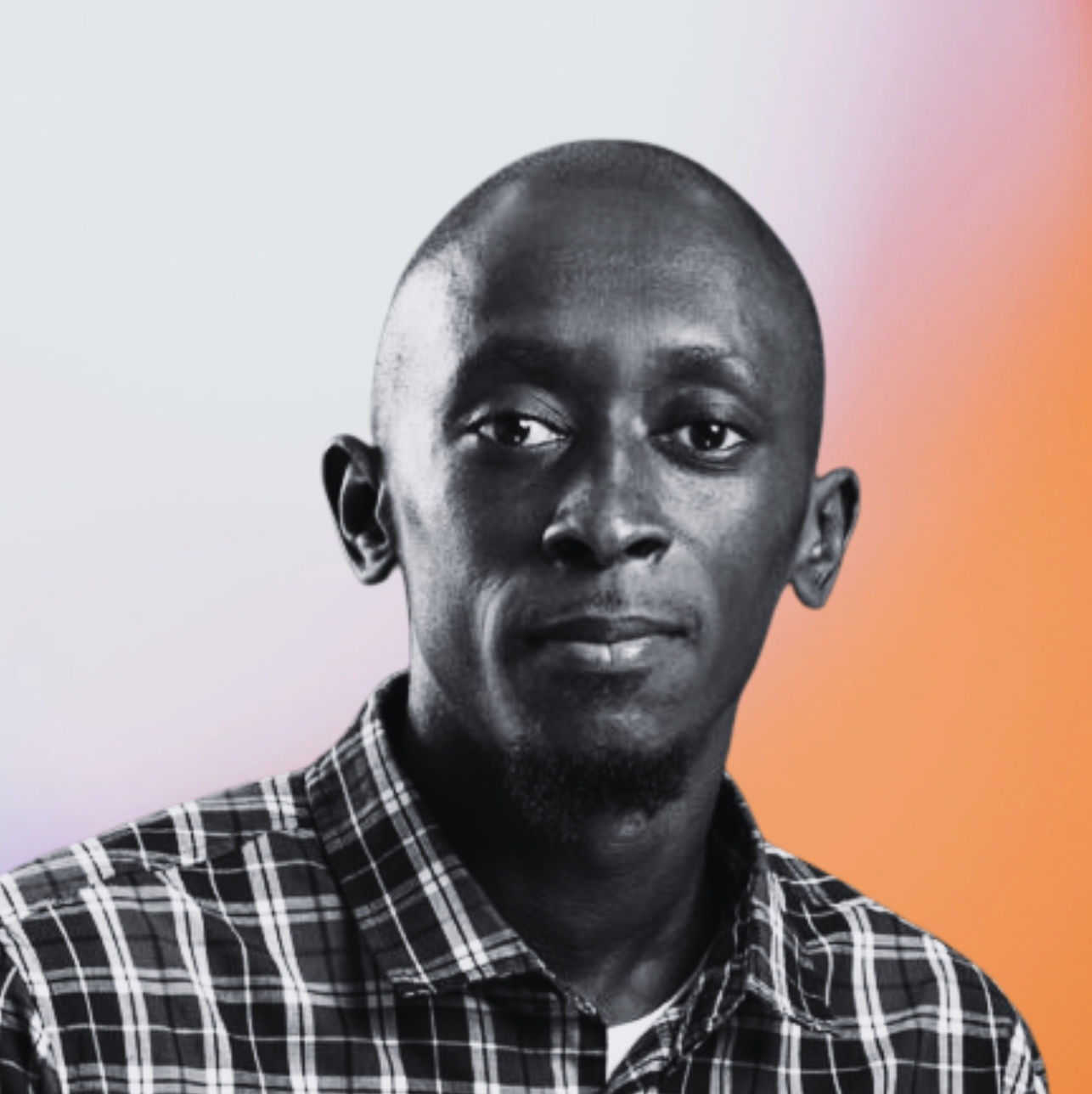
Dr. Sidy Ndao is a scientist, entrepreneur, and education advocate dedicated to advancing STEM and AI innovation in Africa. He earned his Ph.D. in Mechanical Engineering from Rensselaer Polytechnic Institute (RPI) and completed postdoctoral research at the Massachusetts Institute of Technology (MIT). As a tenured faculty member at the University of Nebraska-Lincoln (UNL), he led groundbreaking research in thermal computing, including the invention of the world’s first thermal logic gates, a milestone in the emerging field of “Heat Information.” Dr. Ndao is the founder and president of the Dakar American University of Science & Technology (DAUST) and SenEcole, which organizes the Pan-African Robotics Competition (PARC), Africa's largest STEM youth program. He is also co-founder and CEO of CAYTU, an AI and Robotics startup which is redefining how businesses leverage autonomous robotics through Robotics-as-a-Service. His work integrates cutting-edge research with a passion for nurturing future innovators in STEM and AI across the continent.

Takudzwa Caitano is a founder, builder, and AI strategist with deep cross-sector experience spanning entrepreneurship, education, consulting, and investment banking. As CEO and Co-founder of a stealth AI startup, he is focused on solving global education mobility through intelligent infrastructure and agentic solutions.
Previously, he led strategic partnerships at Initio Studios, a San Francisco–based venture studio, where he drove ecosystem growth by securing partnerships across AI, fintech, and consumer technology, while designing founder services and go-to-market strategies for portfolio startups.
Before that, Takudzwa advised Fortune 500 companies and high-growth startups at Bain & Company, delivering strategic initiatives across go-to-market, pricing, M&A integration, and operational transformation. He also gained transactional experience at LionTree and Morgan Stanley, supporting M&A and capital-raising transactions across consumer internet, gaming, digital health, and media, developing financial models, investor materials, and market insights.
In the education and social impact space, Takudzwa co-developed the Shasha Bridge Programme and served as its inaugural mentor, empowering African youth through modules on self-leadership, career discovery, and personal branding. He continues to mentor students globally through Crimson Education, helping them gain admission to top universities and competitive scholarships.
Takudzwa earned his B.A. in Economics with Distinction from Stanford University, where he received the J.E. Wallace Sterling Award for Scholastic Achievement—presented to the top 25 students in the School of Humanities & Sciences, and the Stanford Award of Excellence, recognizing the top 10% of graduating seniors for extraordinary leadership, service, and impact.
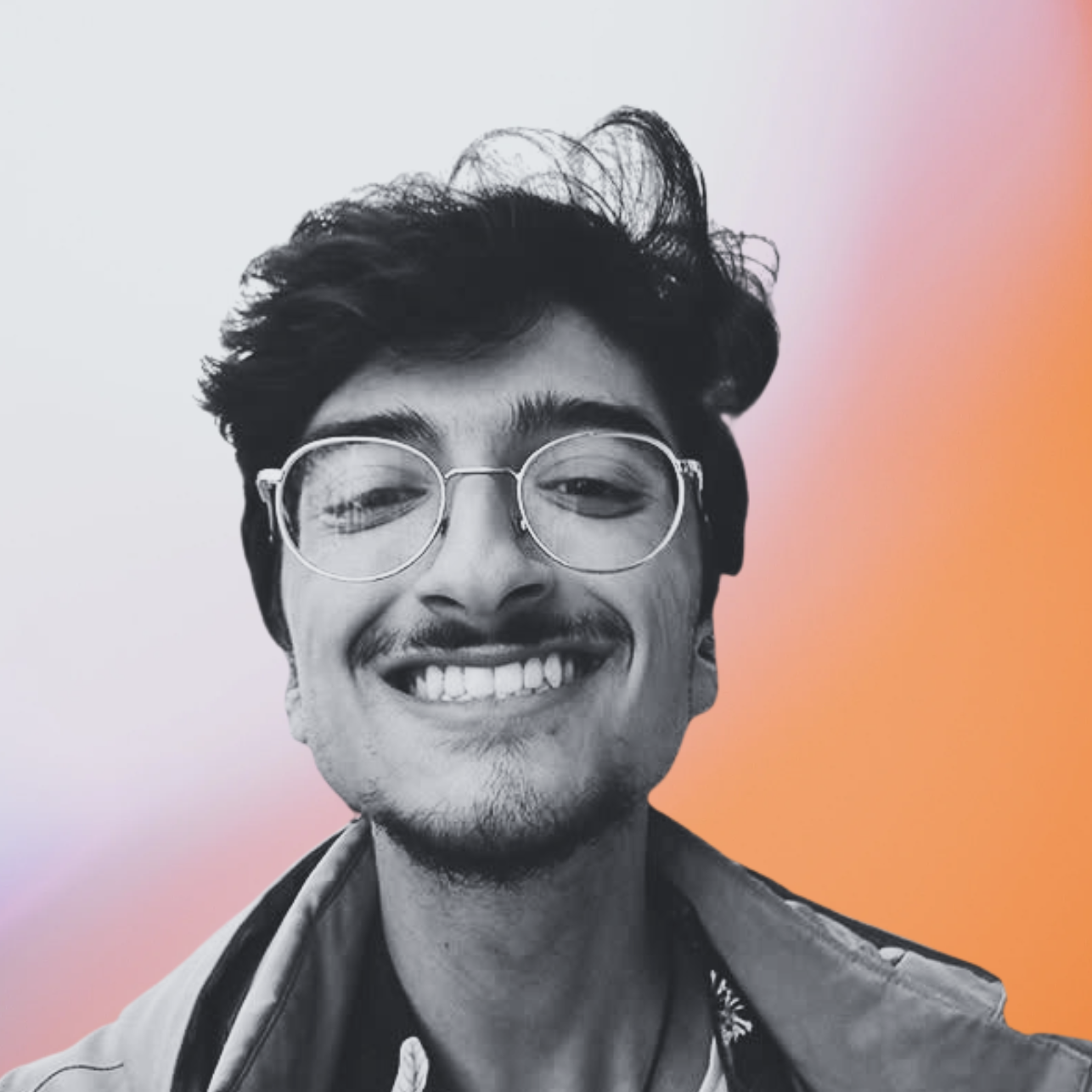
Daksh is a systems builder and mathematically trained thinker creating emotionally intelligent technologies that restore agency and confidence—especially around money. Raised in the Netherlands as a neurodivergent child of Afghan refugees, Daksh brings a rare blend of technical fluency, behavioral insight, and personal conviction to everything he builds.
Now a mathematics major at Claremont McKenna College, Daksh draws on his lived experience with financial instability to design tools that meet users at the intersection of emotion, identity, and decision-making. He moves fast: shipping product, testing ideas, and scaling with intention. His work is defined not just by invention, but by empathy and execution.
A Prometheus X Venture Fellow, Daksh has also worked with refugees at UNICEF, volunteered at grassroots political organizations, and founded an early social venture in South Africa. He is part of a rising generation of founders shaping responsible, inclusive applications of AI, with a focus on mental wellbeing, access, and user dignity.

Leroy began his journey in climate technology as a teenager with Greenpact, a social enterprise that converted human waste into clean energy. Greenpact’s work was featured by CNN and Forbes, and its measurable impact was independently audited by PwC, demonstrating a 1:13 Social Return on Investment (SROI). This early experience shaped Leroy’s systems-thinking approach to sustainability and his belief that technology can directly solve infrastructure challenges in emerging markets.
He later transitioned into software engineering, leading major edtech initiatives at Synthesis, a U.S.-based lab school originally incubated by SpaceX engineers. At Synthesis, Leroy helped design and scale interactive learning systems for more than 5,000 students worldwide. His work spanned real-time multiplayer game design, AI-driven parent feedback platforms, and workflow automation pipelines that achieved over 40 percent operational efficiency gains through intelligent process orchestration.
Leroy boarded his first plane at sixteen to participate in a global panel alongside LinkedIn co-founder Jeff Weiner after receiving a competitive scholarship. That moment was more than travel, it was an initiation into global networks and a firsthand lesson in how access to mobility shapes opportunity. For millions of young Africans, that access remains structurally constrained by cost and logistics.
Today, Leroy is applying his interdisciplinary expertise to aviation logistics, building agent-powered systems to optimize aircraft parts supply chains across Africa. His work aims to reduce turnaround times, enhance maintenance efficiency, and ultimately make regional air travel more affordable and accessible.
Leroy’s trajectory bridges sustainability, education technology, and intelligent automation. His mission is to expand the frontier of accessible innovation across the Global South by engineering systems that remove friction, extend reach, and unlock human potential.
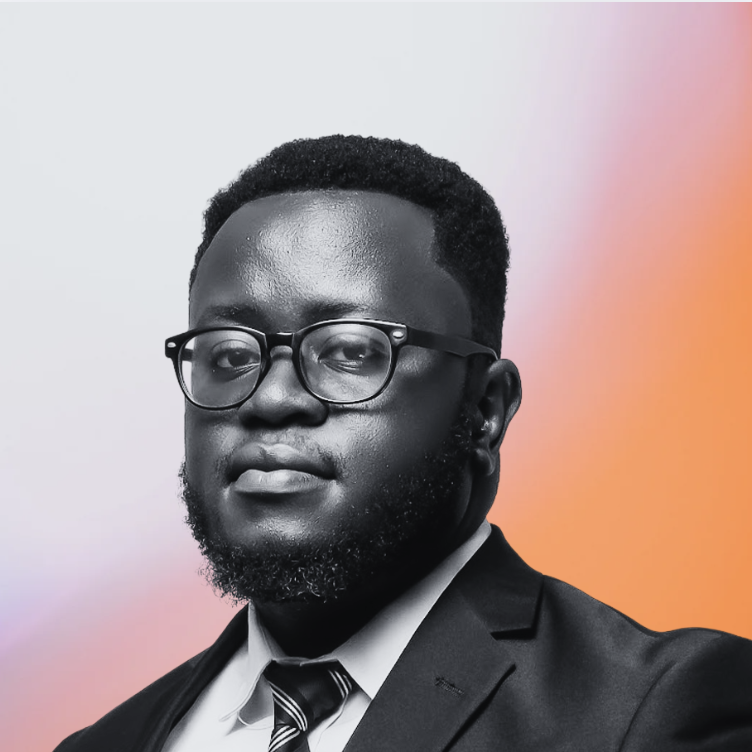
Andrew Ddembe is a health equity advocate, health lawyer, CEO and founder of Mobiklinic Foundation , a digital health organization that strives for improved last mile health delivery and equitable vaccines access. Andrew founded Mobiklinic in 2018. His organization has unlocked access to health care and vaccines to people in Buikwe region Eastern side of Uganda. Mobiklinic is also present in Busia western Kenya. Andrew has worked as a young expert in the African union and European union youth cooperation hub. He currently sits on the WHO Civil society and youth commission representing and advocating for digital health as a means to ease health and vaccines access. Andrew’s vision is to scale Mobiklinic across Africa and enable health equity right from the grassroot communities through creation, utilization and digital empowerment of Community health workers.
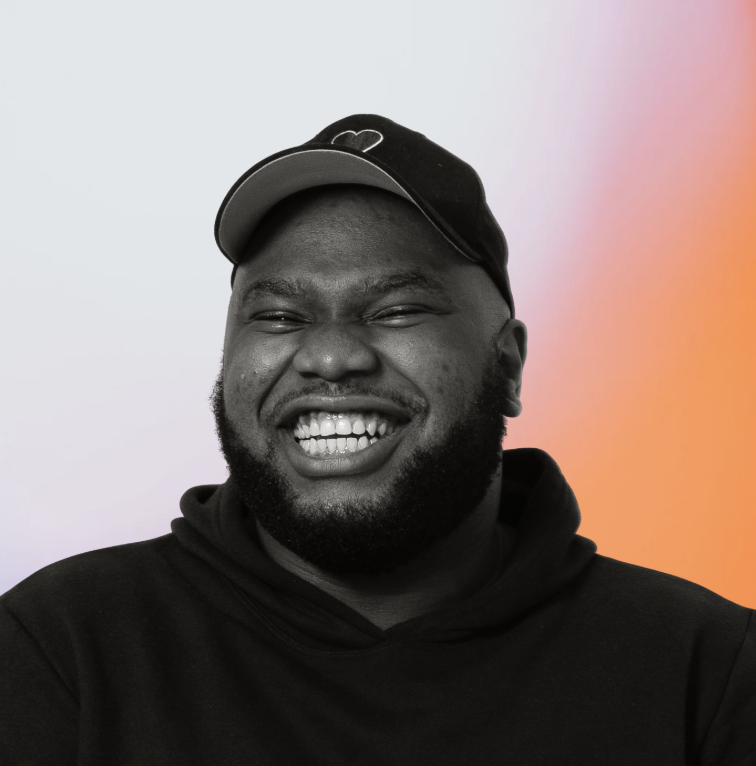
Ayoola Oluwanusin is an engineer, founder, and product builder exploring the future of clean energy and decarbonisation. Trained in Electrical and Electronic Engineering at King’s College London, his thesis applied quantum computing to portfolio optimisation and produced the Q-Score, a framework for benchmarking quantum algorithms, earning 1st Class honours and departmental commendations.
He has built large-scale systems at Bloomberg, UBS, and Google Cloud, delivering credit-risk engines, loan-monitoring platforms, and analytics tools that unified post-acquisition CRM data across millions of customers.
As a repeat founder, Ayoola has built products that turn complexity into clarity. Nomad, a digital bank for small businesses, expanded financial access for entrepreneurs across emerging markets. Crypcentra, a crypto analytics platform, served institutional clients. Reeka, a property-management platform, manages hundreds of properties across Africa. Most recently, he launched CommentClose, a tool helping online brands convert their most engaged commenters into customers and revenue.
An Interact Fellow and Prometheus X Fellow, Ayoola is now channeling his engineering and entrepreneurial experience into building systems that accelerate the deployment of clean power and fuels to make abundant, affordable, decarbonised energy a reality for everyone.

Ivoine Strachan is a 20-year-old self-taught builder and emerging technologist from Nassau, Bahamas. Raised in an environment without electricity, Wi-Fi, or running water, and having lost his mother at sixteen, Ivoine forged his education through self-directed learning, leveraging community libraries, open-source resources, and a growing global network of mentors and peers.
His entry point into technology was deeply practical. Facing extreme heat and a lack of infrastructure, he set out to design a low-cost, solar-powered fan for his grandmother. Using a small photovoltaic panel, an Arduino microcontroller, and repurposed fan blades, he engineered an autonomous cooling system that ran entirely off-grid. The success of that prototype was transformative as it demonstrated how local problems could be addressed through accessible hardware, applied physics, and creative resourcefulness.
At seventeen, Ivoine received a global grant to attend a Hack Club hackathon in San Francisco, joining a cohort of young builders working at the intersection of hardware and social innovation. Since then, he has continued to develop human-computer interface systems that integrate electronics, embedded software, and biosensing. His most recent project is a full-body haptic feedback and thermal-response suit designed to enhance realism in virtual and augmented environments through programmable muscle stimulation and temperature modulation.
Ivoine’s work sits at the frontier of human-machine interaction, low-resource innovation, and inclusive engineering, demonstrating how ingenuity and open knowledge can expand access to technology everywhere.

Dr. Nnaemeka Emmanuel Nnadi, Director of Research at Plateau State University and President of the Africa Phage Forum, is at the forefront of phage therapy and vaccine development to address antimicrobial resistance (AMR). As a Prometheus X Catapult Fellow, Dr. Nnadi is advancing research on phage-based solutions for pathogens like Salmonella typhi and Pseudomonas aeruginosa, which present significant health challenges in Nigeria and other low-resource settings.
At Nigeria’s first dedicated phage research center, Dr. Nnadi and his team are developing phage cocktails tailored to bacterial strains prevalent in the region. These efforts include the development of a phage-based typhoid vaccine, which is currently in early stages of research. By using locally sourced phages, his work aims to improve the effectiveness of treatments for infections that are increasingly resistant to antibiotics.
The Catapult Fellowship supports Dr. Nnadi’s research collaborations at the University of Waterloo, where he is expanding his expertise in phage vaccine development. This work includes designing a low-temperature, needle-free, and adjuvant-free typhoid vaccine that could improve access to vaccination in underserved communities. Additionally, Dr. Nnadi is exploring how artificial intelligence might accelerate phage research by optimizing vaccine design and predicting bacterial resistance patterns.
Dr. Nnadi’s research reflects the mission of Prometheus X by pushing the boundaries of innovation in global health. By fostering local solutions to urgent public health challenges, his work underscores the importance of empowering researchers in resource-limited regions to drive transformative change.
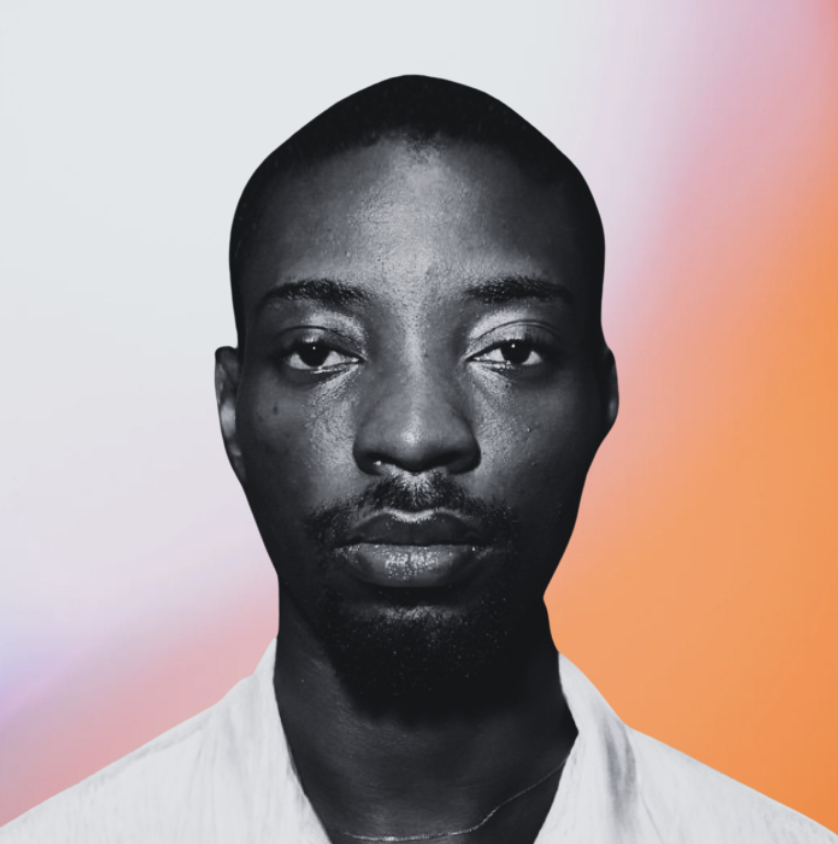
Israel Ifedayo, a self-taught engineer from one of Lagos' toughest neighborhoods, began his coding journey at the age of 12. Despite limited resources, he built a plastic-to-gas converter for his school's science fair and won an Arduino board, which he couldn't afford to collect.
Undeterred by the lack of a computer for two years after high school, Israel worked odd jobs to buy his first laptop, held together by door hinges, and taught himself web development through YouTube tutorials.
By 19, Israel had architected an enterprise-grade property management system that processed over $10 million in transactions and helped more than 300 businesses survive the COVID-19 pandemic. At 20, he pioneered Nigeria's first telematics-based insurance platform, developing an AI-driven actuarial system that automated risk assessment for over 15,000 users and reduced costs by 70% compared to traditional insurers. Most recently, as the founding engineer at Pawtrip, Israel built a comprehensive pet travel platform that grew from $400 to more than $10,000 in MRR within a year.
Israel's journey highlights the stark contrast in opportunity distribution worldwide. While building world-class systems, he noticed peers in developed markets raising millions with just prototypes, while he and his team bootstrapped their way to serving thousands of users. Israel believes that talents from underserved regions often have to work twice as hard for half the recognition.
His experiences have shaped his approach to creating technology solutions that are resilient, high-value, and can thrive with limited resources.
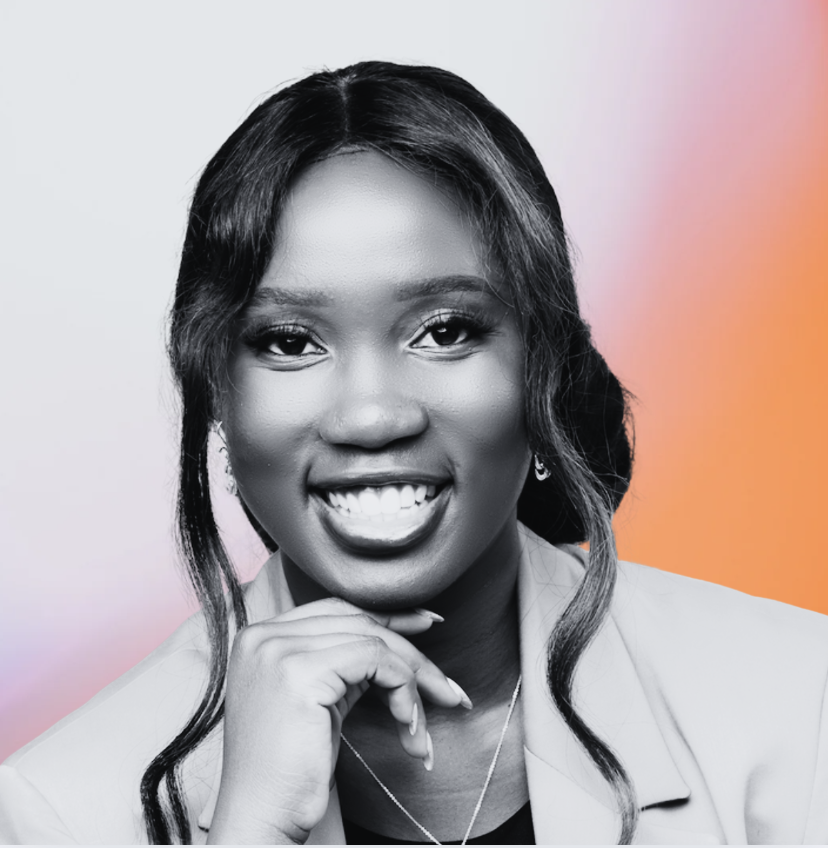
Sedinam Worlanyo is passionate about democratizing access to education and sharing untold stories from a creative educational lens. She launched “Skills Scratchpad,” a newsletter dedicated to bridging the confidence gap for career switchers looking to break into the tech industry. Sedinam also facilitates workshops with a variety of learners worldwide, including learners from African Leadership University and Stanford University's MS Design program.
At Coursera, Sedinam leverages her expertise in product research to investigate complex challenges in education from learner retention and educator analytics to AI-powered global solutions. Her work has informed impactful innovations, such as academic integrity tools, advanced machine translation, and AI-driven career pathway personalization, all aimed at enhancing the learning experience for millions who use the Coursera platform. Beyond her research, Sedinam leads the Coursera for Africa initiative, forging partnerships to connect young African talent with transformative opportunities.
In 2012, she co-founded Dislabelled, a non profit aimed at promoting career and educational and economic growth of people with disabilities in Ghana. She also founded YenAra robotics, a robotics and design thinking program aimed at providing hands-on exposure to STEM and tangible problem solving skills to young girls in Odoben in the Central Region of Ghana.
She holds an M.Sc. in Learning, Design & Technology from Stanford University and a B.A. in Computer Science and Economic Development from Swarthmore College. Outside of work, she enjoys dancing to Afrobeats, singing, and spending quality time with family.
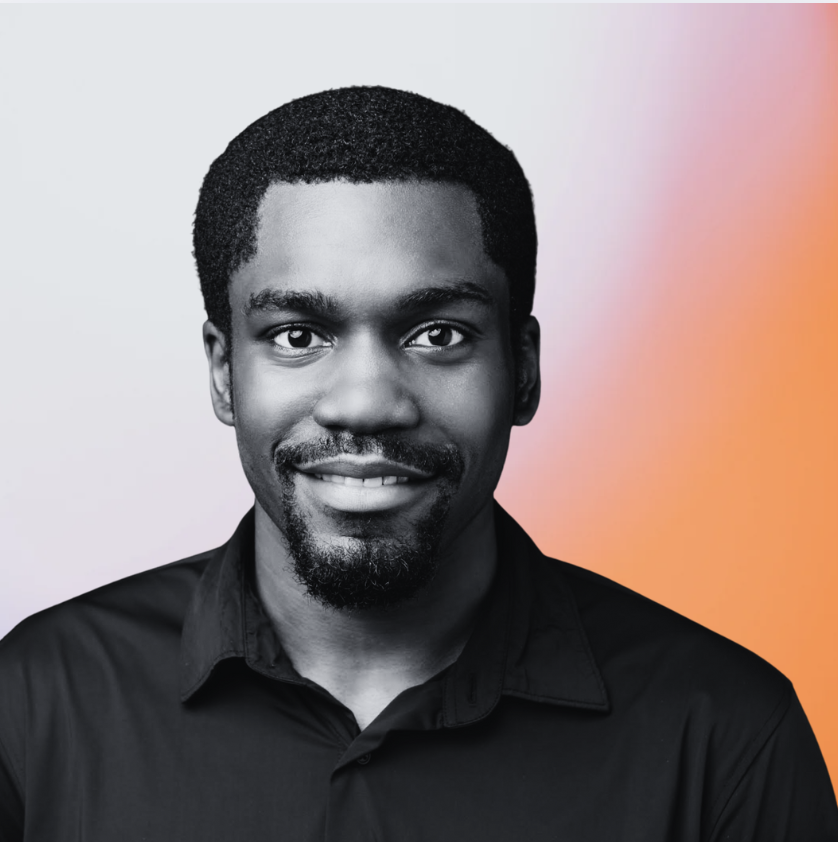
Joshua Uwaifo is the CEO and Founder of UEFO Pro Coach, a pioneering platform delivering personalised UEFA Pro-level football coaching solutions for youth, esports, and professional players. At 28 years old, Joshua has amassed over a decade of experience in developing AI and machine learning solutions, specialising in sports analytics and coaching systems. He holds an MSc in Artificial Intelligence from the University of Edinburgh and a BSc in Mathematics and Computer Science from the University of Warwick. Joshua has collaborated with esteemed organisations such as the University of Oxford and Cambridge’s joint AI venture, Oxbridge AI-x, FIFA, EA Sports, AstraZeneca, and PwC UAE. His notable achievements include developing the FIFA Club World Cup Automatic Offside Solution Proof of Concept and securing a Top 5 global ranking in FIFA 21 through his AI-driven coaching system. Based in Dubai, United Arab Emirates, Joshua leverages his technical expertise and passion for football to revolutionise coaching methodologies. He is supported by a team of advisors, including Keith Boanas, the UEFA Pro Coach License Examiner, and collaborates closely with his wife, who serves as a co-founder and accountability partner. Joshua’s commitment to innovation and excellence is evident in his contributions to both digital and physical aspects of football coaching, aiming to enhance player development and optimise coaching performance on a global scale
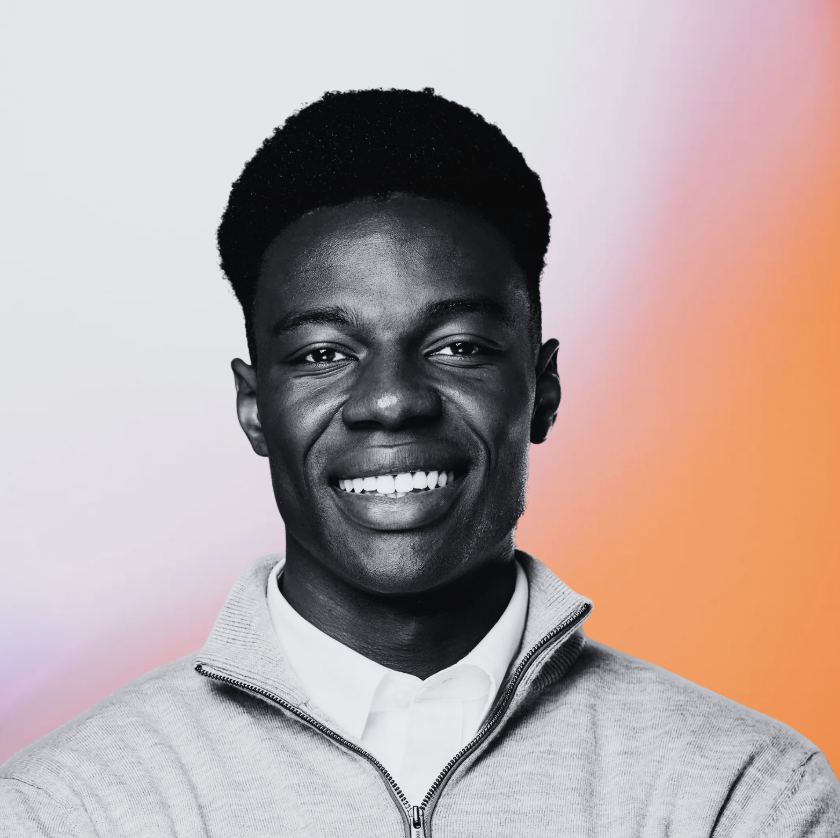
Jeffrey Fasegha is a Co-Founder of Deducta, an AI-powered data orchestration and intelligence platform for global teams. Previously, he co-founded and led Fyyne, a Canadian startup delivering operational software for independent beauty artists in North America and the UK.Jeffrey started his professional career in Investment Banking and Management Consulting, along with various roles at early-stage startups.
A former semi-pro hockey player, Jeffrey was drafted 2nd overall in the North American Hockey League. Following a career-ending injury, he went on to study Finance and Psychology at the University of Toronto, where he graduated with High Distinction and spearheaded several equity initiatives.
In 2020, Jeffrey was awarded a Rhodes Scholarship to study at Oxford University, where he completed an MSc in African Studies and an MBA, both with a focus on the Nigerian digital economy. At Oxford, Jeffrey took on leadership roles within the Rhodes Incubator, the Black Association of Rhodes Scholars, and captained the university’s varsity ice hockey team.Born in Nigeria to Igbo and Yoruba parents,
Jeffrey immigrated to Canada as a child and grew up in Calgary, Alberta. He is deeply passionate about entrepreneurship and using innovation as a tool for economic and social development. In his free time, Jeffrey enjoys playing the guitar, writing, and playing sports. He is also an avid film fan and a producer on various film projects.

Farai Munjoma is a visionary education entrepreneur and the founder of Shasha Network, a social venture dedicated to empowering African youth to achieve their full potential. Shasha Network’s innovative borderless classrooms connect underserved students with global mentors, cutting-edge STEM courses, and high-speed internet. To date, over 650 students in Rwanda have acquired critical digital literacy skills through the program, bridging the gap between talent and opportunity.
Farai’s work also extends to the AI Educator Fellowship, a program designed to equip early-career teachers in Zimbabwe and Rwanda with AI literacy and tools to integrate emerging technologies into their teaching. By cultivating a robust community of tech-savvy educators, Farai ensures that the next generation of African students is prepared to excel in STEM fields. This initiative exemplifies his unwavering commitment to locally-led innovation and community-driven impact.
Farai collaborates with major organizations such as HP Education, Schmidt Futures, and the Mastercard Foundation to drive systemic change in education. Additionally, he serves as a regional talent scout for the Ellison Scholars Program at the Ellison Institute of Technology, University of Oxford, broadening opportunities for exceptional African talent.

Fiona is the CEO of The Mawazo Institute, a women-led organisation supporting African women researchers to become thought-leaders and changemakers beyond academia. The women in Mawazo's network have launched startups that optimise solar energy using Machine Learning, an AI chatbot for HIV/AIDS awareness, and contributed to the drafting of Kenya’s Artificial Intelligence and Robotics Bill.
Fiona is passionate about creating space for diverse voices and driving evidence-based solutions across academia, policy, and industry. She has led sustainable marine aquaculture and conservation projects in the Comoros and Kenya and holds an industry-based PhD in microalgal biotechnology. She is also the co-founder of Mawimbi Ocean Innovations that provides access to “seaweed-farming-as-a-service” for thriving and climate-resilient coastal communities in East Africa. Fiona is a Women for the Environment Africa Fellow, an African Marine Conservation Leader, and sits on the Executive Committee of the International Society of Applied Phycology.

Dr. Yabebal Fantaye is a trailblazing astrophysicist, cosmologist, and data scientist, whose life's work has been dedicated to unlocking the untapped potential of Africa's next generation of STEM and AI leaders. As Co-Founder and Scientific Director of 10 Academy, Dr. Fantaye has developed innovative programs that transform lives by addressing the global opportunity gaps in technology and data science. His efforts have achieved exceptional outcomes, including a 95% placement rate and a more than 5x salary increase for trainees—a testament to the transformative power of his vision.
Dr. Fantaye’s career is defined by his unwavering commitment to democratizing access to STEM and AI careers. His "Barefoot Revolution" theory of change reflects a deep belief in scalable, cost-efficient solutions that empower young Africans to thrive in the rapidly evolving technological landscape. Over the past decade, his work has equipped thousands with skills in machine learning, data engineering, and generative AI, resulting in an ROI of over 100x for trainees and fostering global impact.
Recognized by the World Economic Forum as a Young Scientist and a member of the Global Future Councils on New Metrics, Dr. Fantaye’s leadership at 10 Academy exemplifies the mission of Prometheus X: creating a world where STEM and AI-enabled innovations are accessible to all, regardless of background. With his unique blend of academic expertise, visionary thinking, and actionable strategies, Yabebal is setting new benchmarks in talent development for emerging technologies.
This prize celebrates Dr. Fantaye's extraordinary contributions to STEM and AI education, his innovative use of AI as an equalizer and accelerator for development, and his dedication to nurturing talent.

Adobi Adibe is a trailblazing engineer-turned-biomedical researcher and entrepreneur working at the intersection of technology, biology, and human resilience. She studied Electrical and Electronic Engineering at the University of Manchester, where she founded a solar energy training company that equipped over 100 individuals in rural Nigeria with renewable energy skills.
After being diagnosed with kidney failure, Adobi took the extraordinary step of teaching herself biology in under six months, ultimately earning a research position at the Francis Crick Institute. There, she developed a groundbreaking diagnostic assay for autoimmune schizophrenia, which is 10 times more sensitive and comprehensive than the current industry standard.
Today, Adobi is a visiting scientist at King’s College London, where she is leading cutting-edge research focused on preventing organ failure, beginning with the kidney. She is preparing to launch a biotech company later this year to bring her innovations from the lab to the clinic.
A three-time Emergent Ventures grantee, Interact Fellow, and New Science grantee, Adobi is committed to building transformative technologies that expand the boundaries of science and health equity.

Jadal Williams is a PhD candidate in Mechanical Engineering at MIT, where his research focuses on the intersection of computer vision, robotics, and AI to solve complex, real-world challenges. A graduate of Stanford University (B.S.) and MIT (M.S.), Jadal brings a rare blend of technical mastery, innovative thinking, and entrepreneurial drive to everything he pursues.
His academic work has contributed to advancements in AI-driven systems, including his published research on reduced-order observers using image-based observables, recognized at Optica. Beyond the lab, Jadal’s leadership extends to co-founding a stealth AI startup, where he is developing solutions that leverage computer vision and advanced analytics to address critical, overlooked challenges. His ability to translate complex AI research into actionable, impactful tools demonstrates his commitment to pushing boundaries in STEM innovation.
Jadal’s achievements reflect his exceptional promise as both a researcher and a builder. With a proven track record of success, technical excellence, and collaborative leadership, he is well-positioned to make a lasting impact at the frontier of AI and robotics. As a Prometheus X Venture Fellow, Jadal embodies the mission of empowering visionary talent to drive meaningful, high-impact innovation in STEM and beyond.

Tyrique King is a Special Advisor and Venture Fellow at Prometheus X and the Founder and CEO of Velocity Labs, where he is building an AI tutor to deliver personalised workforce training in AI at scale.
Previously, Tyrique played a pivotal role as #2 in building and fundraising for the Virtual Centre of Advanced Potential at Schmidt Futures, which has since evolved into Prometheus X.
He has also worked at Google, University of Cambridge Psychometric Institute and other startups, working at the intersection of AI, Psychology of motivation and learning, and marketing. Tyrique's academic achievements include being the sole MSc Google-DeepMind Scholar at the University of Oxford in his year. He also graduated with First Class honors and received a departmental prize from the University of Warwick, where he designed an entirely new degree structure.

Hamidah Oderinwale is an extraordinary talent and a rising star across multiple fields. As an undergraduate at McGill University, she balances her academic pursuits with groundbreaking research, most notably at the Topos Institute, where she explored complex questions at the intersection of mathematics and science. Her intellectual curiosity previously led her to impactful work at the Redwood Center for Theoretical Neuroscience, where she contributed to advancing theoretical research.
Hamidah’s drive and versatility extend beyond academia. She spent a summer at Amazon (AWS) in Vancouver, contributing to the Data Provenance Initiative and supporting NaijaCoder, an initiative dedicated to fostering tech skills among Nigerian youth.
Her passion for innovation also spans policy and metascience. As a fellow at the Institute for Progress (IFP), a leading DC think tank, Hamidah works on critical issues like high-skilled immigration. She further shapes bold ideas for the future as a contributing editor at Reboot, a platform for thought leadership and innovation. In recognition of her remarkable potential, Hamidah is a recipient of the prestigious Emergent Ventures grant from economist Tyler Cowen and a member of Interact, a community amplifying the work of high-impact individuals. Her dedication to pushing boundaries across research, policy, and technology highlights her leadership in shaping a more innovative future.

Dr. Nicholas Johnson is a pioneering researcher, technologist, and entrepreneur at the forefront of machine learning and optimization. A 2024 graduate of MIT’s PhD program in Operations Research, Nicholas has developed cutting-edge AI-driven systems to solve complex, real-world challenges, particularly in high-stakes and uncertain environments.
Nicholas first gained national recognition as the first Black Valedictorian in Princeton University’s 274-year history, graduating with highest honors in Operations Research and Financial Engineering, alongside minors in Computer Science, Statistics, and Applied Mathematics. His groundbreaking undergraduate research optimized preventative health interventions, demonstrating his ability to translate advanced technical knowledge into meaningful societal impact.
With experience spanning Google, D. E. Shaw Group, and academic research at Princeton, MIT, and Oxford, Nicholas has built a reputation for combining analytical rigor with innovation. His research has been featured in top journals and conferences, reinforcing his position as a leader in AI and data-driven decision-making.
As a Prometheus X Venture Fellow, Nicholas is leveraging his expertise to develop transformative solutions with wide-reaching implications. His blend of technical excellence, entrepreneurial vision, and relentless drive to address real-world problems embodies the mission of Prometheus X: empowering visionary talent to unlock new frontiers in AI and STEM.

Rupert Tawiah-Quashie is currently a NeuroAI research associate at Harvard University working under Dr. Colin Conwell at the Harvard Vision Lab and Prof Tomer Ullman at the Computation Cognition and Development lab where he is contributing to groundbreaking research aimed at enhancing symbolic reasoning capabilities in generative AI models. His work involves designing and implementing experiments to test state-of-the-art text-to-image AI models on complex logical operations, including relations, negations, and numerical reasoning. Rupert develops advanced image processing techniques, such as object segmentation using YOLO and SAM, and expands the DeepJuice package with diverse image processing methods. His research aims to create more transparent, reliable, and accessible AI systems.
Passionate about democratizing AI and making technology accessible, Rupert co-founded Code_gh, an initiative that teaches coding and machine learning to high school and college students in Ghana. His technical expertise spans machine learning, deep learning, natural language processing, and image processing, with proficiency in various AI frameworks.
A recent graduate of Hampshire College with a B.A. in Computer Science and Applied Mathematics, Rupert has earned numerous accolades, including the Davis Project for Peace Grant and Emergent Ventures Grant. As a Ghanaian international student, he has demonstrated exceptional academic prowess and leadership throughout his academic journey.